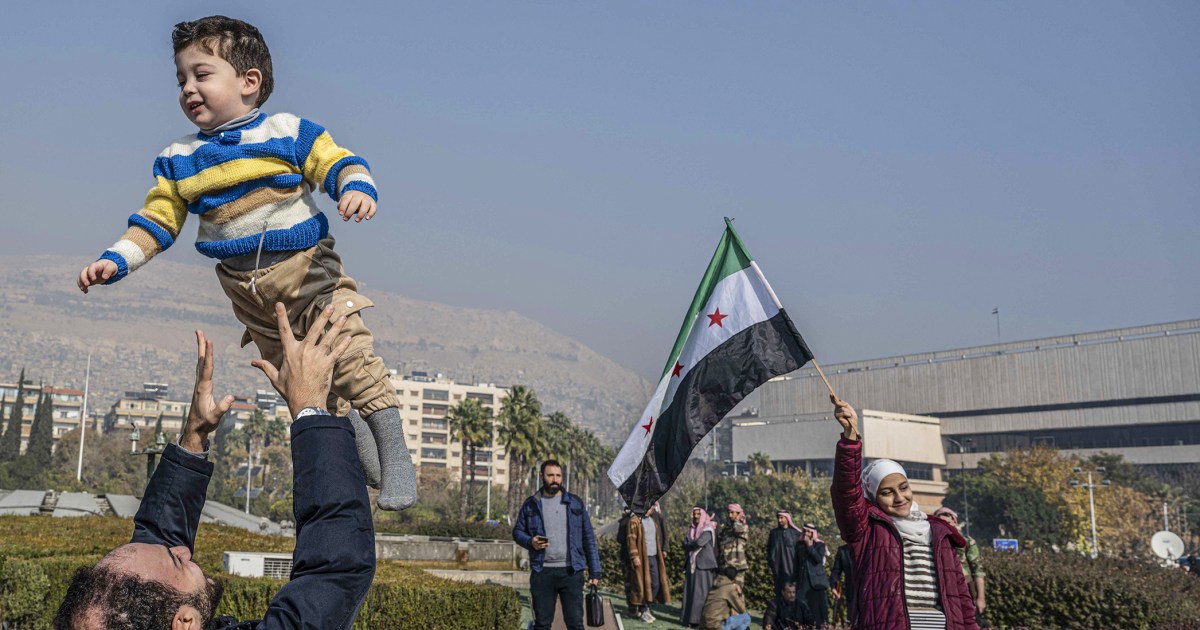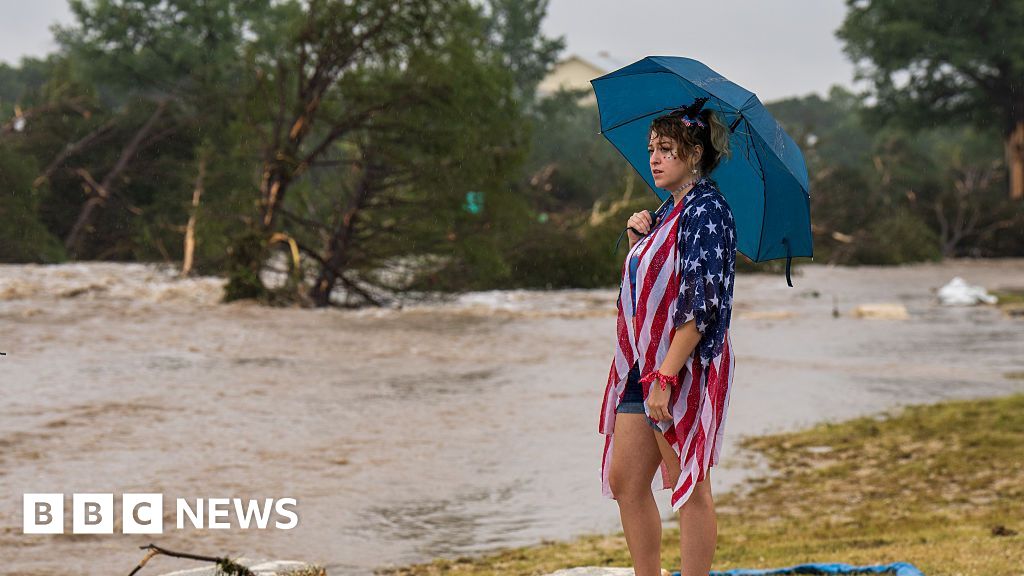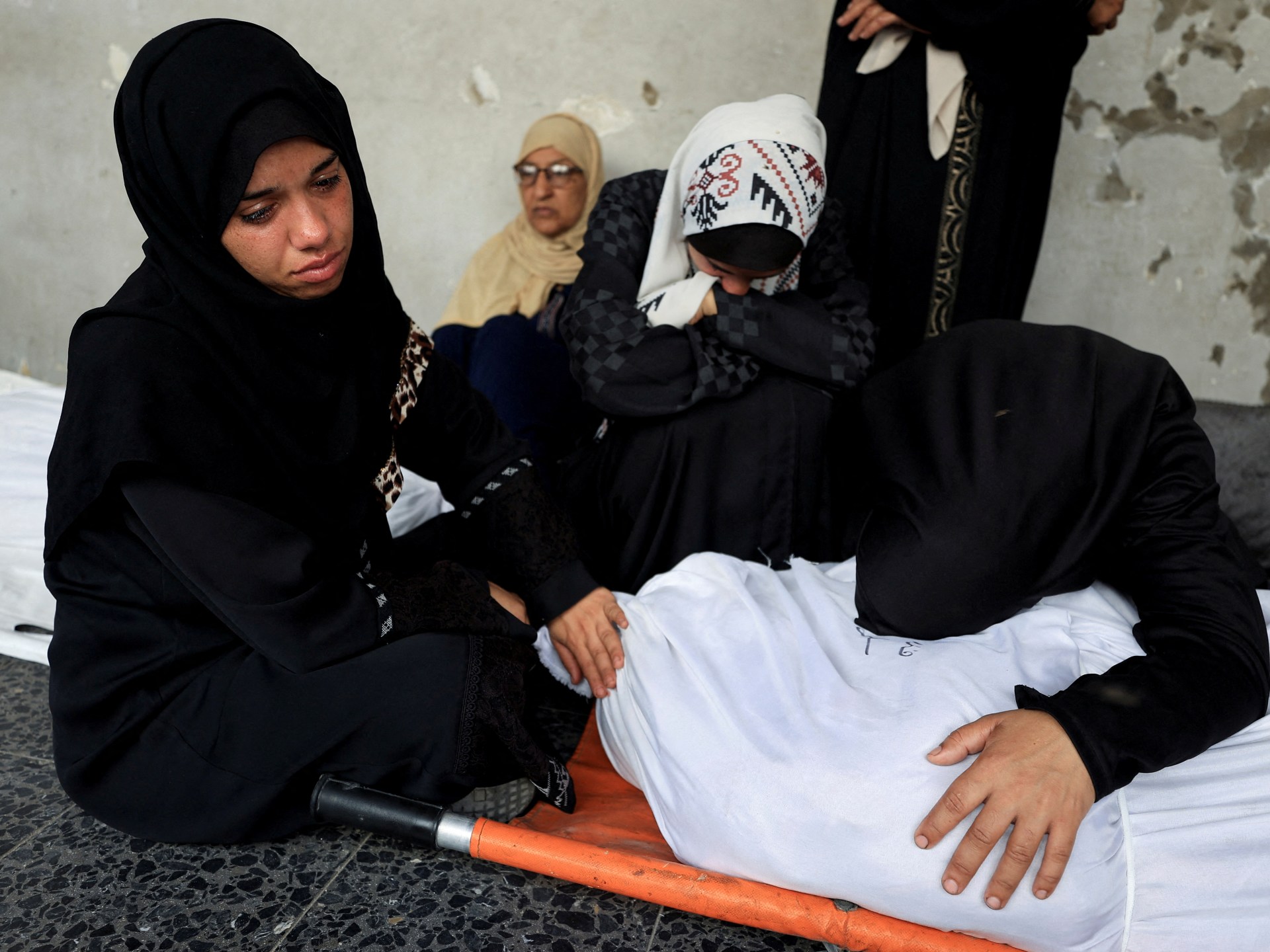DAMASCUS, Syria — Jubilant Syrians waving flags clambered Monday onto a government tank abandoned in the capital city’s main square and took selfies.
Others defaced or tore down the omnipresent portraits of ousted President Bashar al-Assad from government buildings. At the same time, hundreds of Syrian exiles streamed back into the country from Lebanon through unguarded border crossings.
And just outside Damascus, celebrating crowds tossed a noose around the towering statue of Assad’s father, Hafez al-Assad, the dictator who first imposed his iron grip on Syria a half-century ago, and toppled it to the ground. Then they chained it to the back of a truck and dragged it through the streets past cheering crowds.
Everywhere, it seemed, the celebrations were accompanied by the sounds of rebels firing their AK-47s into the air, by honking horns, and by the sounds of Syrians of all ages yelling “Hurriyah! Hurriyah!” — or “Freedom! Freedom!”
The streets were littered in places with the discarded uniforms of Assad’s soldiers, who dispersed before the Hayat Tahrir al-Sham (HTS) militants entered Damascus and all but ended a bloody 13-year civil war that had torn this ancient land apart.
Assad, who fled with his immediate family to Russia and was granted asylum by his longtime patron Vladimir Putin, was not around to see his countrymen embracing the HTS rebels who had, in a matter of days, taken over Syria.
Hours after Assad fled, HTS leader Abu Mohammad al-Jolani arrived at a Damascus mosque wearing military fatigues.
In recent years he’s also taken to using his real name, Ahmad al-Sharaa.
Al-Jolani ordered his men to not harm civilians and to stop looting, although Syrians could be seen removing furniture and other items from Assad’s abandoned palaces and eyeing the fleet of luxury cars the dictator kept in a garage.
One of the first things al-Jolani’s forces did was burst into Assad’s brutal jails and free thousands of prisoners, many of whom had been held for decades in horrific conditions under which rape and other sexual torture were rampant.
But al-Jolani heads a militant group that was once Al Qaeda’s Syria branch and which both the U.S. and United Nations have designated a terrorist organization. And a wary world was watching to see whether Syria was replacing one despot with another.
Still, President Joe Biden on Sunday declared, “At long last, the Assad regime has fallen.”
“We will engage with all Syrian groups, including within the process led by the United Nations, to establish a transition away from the Assad regime,” he said.
The U.S. has about 900 American troops stationed in northern Syria and has been closely monitoring the HTS takeover of Syria.
President-elect Donald Trump delivered a different message on his Truth Social platform Saturday morning, writing, in capital letters, that the U.S. should “have nothing to do with” the situation in Syria.
“This is not our fight,” he wrote. “Let it play out.”
Al-Jolani has tried to reassure his countrymen in multiethnic and multireligious Syria that all faiths will be respected and that there will be no retribution against the low-level government functionaries and soldiers who served the Assad government.
He has also vowed not to go after all of the Alawites, the minority sect that Assad’s family is part of and that ran the military and government and controlled the country with a Soviet-style secret police apparatus whose main objective was stifling all dissent by any means necessary.
So far, most Syrians appeared to be taking Golani at his word.
After Damascus fell, Syria’s prime minister, Ghazi al-Jalali, said in a statement that he does not intend to leave “except in a peaceful manner that ensures the continued functioning of public institutions and state facilities, promoting security and reassurance for our fellow citizens.”
He said that the government is ready to cooperate with “any leadership chosen by the Syrian people.”
In the town of Qardaha, where the Assad family is from and where Hafez al-Assad is buried, the elders vowed in a statement Monday to cooperate with Syria’s new rulers.
As for the portraits of the father-son dictators that are everywhere in this coastal Syrian city, “the attendees call for the removal of all statues and images from public squares and places,” the elders declared.
Nearly 7 million Syrians have fled the country in the last four years, many of them to Europe where the sudden influx of refugees fueled a resurgence of anti-immigrant far-right movements.
With the fall of the Assad regime, the governments of Britain, Germany, Finland and several other European countries announced they would suspend making decisions on asylum applications from Syrian nationals.
“We are analyzing various migration scenarios following the political changes in Syria taking place before our eyes,” Poland’s deputy interior minister, Maciej Duszczyk, whose country takes over the presidency of the European Union Council on Jan. 1, posted on X. “Ensuring security is key.”
Richard Engel reported from Damascus, and Corky Siemaszko from New York City.


